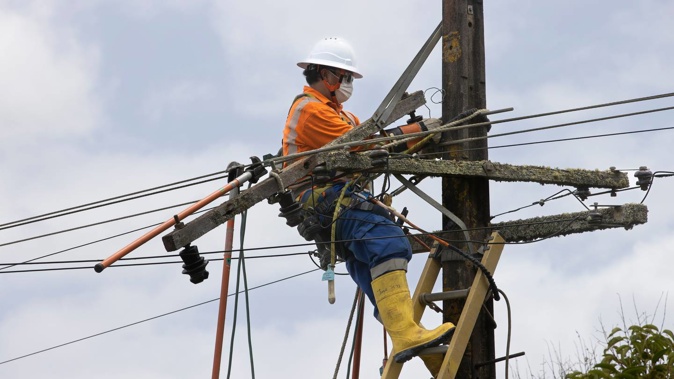
Vector’s net half-year profit to December 2022 fell 13.2 per cent from the same period in 2021, partly due to rising interest costs and a one-off windfall the previous year.
The electricity and gas distribution company reported adjusted earnings before interest, tax, depreciation, amortisation and changes for financial instruments (Ebitda) of $274 million in the six months to December 31, 2022, up 3.9 per cent from the same period in 2021.
That included $94.6m from discontinued operations arising from Vector’s conditional partial sale of its metering segment.
The increase in adjusted Ebitda was largely due to higher electricity and gas revenues. Net profit from continuing operations was $68.3m, a fall of 20.6 per cent or $17.7m from the six months to December 2021. Net profit from discontinued operations to December 2022 was $32m, an increase of 8.5 per cent from the same time in 2021. Total net profit was $100.3m, down 13.2 per cent from $115.5m at the same time the previous year.
Vector announced an interim dividend of 8.25 cents per share partially imputed at 10.5 per cent to be paid on April 6, with a record date of March 28.
The company issued full-year guidance for adjusted Ebitda of between $515m and $525m. That included an estimate of the costs for the recent floods and Cyclone Gabrielle but excluded the change in treatment following the finalisation of the metering deal.
Vector is set to sell a 50 per cent stake in its New Zealand and Australian metering business, Vector Metering, to private equity group QIC Private Capital (QIC), which is expected to generate $1.74b. That part of its operations has been classified in the half-year results as held for sale and as discontinued operations.
Vector chair Jonathan Mason said in a statement that the company had delivered a solid result for the first half of the 2023 year, within a challenging environment.
The fall in total net profit was largely due to the $7.1m gain in the previous period from Vector’s sale of its 50 per cent share of arborist Treescape, along with higher depreciation and interest costs, and negative movements on financial instruments.
Some of the higher costs from inflation in Vector’s unregulated businesses could be passed on to its customers, Mason said. Higher costs in Vector’s regulated line network could be recovered through higher prices, although this was deferred by two years under the current regulatory model, he said.
- Vector overcharged Aucklanders $13.9m
- Vector dividend coming for Aucklanders
- Vector to announce solar energy package
Mason said the company’s network had been significantly damaged by the floods and then by Cyclone Gabrielle. The restoration was complicated by the extent and complexity of the damage, road access and ongoing slips.
”The extreme weather we’ve seen already this year … makes it clear that funding for climate resilience needs urgent attention in the upcoming resetting of regulatory expenditures.”
It’s been estimated that New Zealand will need to spend $22 billion in distribution infrastructure in distribution infrastructure along to manage both the impacts of climate change and the growth in demand for electricity, including the rapid electrification of transport and industry,” Mason said.
Vector’s increase in electricity revenues was from an increase in net connections and higher other pass-through and recoverable costs.
Gas revenue increased due to higher prices and higher volumes.
- BusinessDesk
Take your Radio, Podcasts and Music with you









